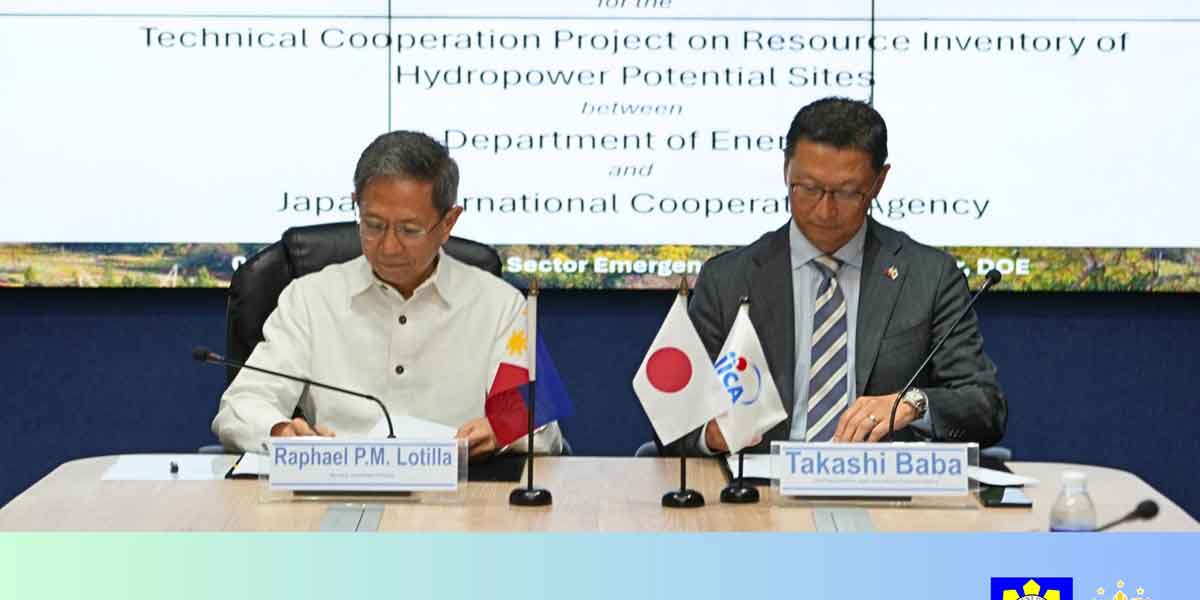By Herbert Vego
“YES, the bill aimed at expanding our franchise coverage is constitutional.”
Speaking was Alyana Babayen-on, lawyer of MORE Electric and Power Corp., in an interview with us (Neri Camiña and this writer) over “Tribuna sang Banwa” on Aksyon Radyo-Iloilo last Sunday.
House Bill No. 10306 proposes to grant MORE Power – the sole electricity-distribution utility in Iloilo City – the authority to expand its franchise coverage to 15 municipalities and one city which are still served by any of the three branches of the Iloilo Electric Cooperative (ILECO).
It has also passed the scrutiny of the Senate committee on public services during a “zoom” public hearing online, with no less than committee chair Sen. Grace Poe vowing to file a complementary Senate bill.
“The Constitution, under Article 12, Section 11,” Babayen-on said, “boils down to granting of public utility franchise to Filipinos, but could be no longer than 50 years if the public good so demands.”
She said that while the Philippine Rural Electric Cooperatives Association (PHILRECA) and National Electrification Administration (NEA) had openly questioned the legality of MORE Power’s expansion based on alleged transgression of provisions of RA 9136 or the Electric Power Industry Reform Act (EPIRA) and PD 269 aimed at developing the electric cooperatives, they could not supersede the fundamental law, the Constitution.
“Competition would spur better service,” Babayen-on opined. “And better service would attract more customers.”
I agree, recalling that the clamor to expand did not originate from MORE Power management but from some residents of Pavia, one of the towns adjoining Iloilo City. “Poor service” and “high cost” constitute their common complaints against ILECO.
The “takeover” under House Bill No. 10306 — authored by Congressmen Mike Gorriceta (2nd District. Iloilo), Braeden John Biron (4th Dist.) and Julienne Baronda (Iloilo City) – gained an overwhelming majority of 182 affirmative votes, and only 10 negative votes.
It would expand MORE Power’s coverage to the towns of Alimodian, Leganes, New Lucena, Pavia, San Miguel, Santa Barbara, and Zarraga (2nd district), and to Anilao, Banate, Barotac Nuevo, Dingle, Dueñas, Dumangas, San Enrique and Passi City (4th district).
They still belong to any of the three ILECO branches with a combined customer base of more than 353,000 households. The biggest of the three, ILECO 1, serves 138,155.
MORE Power, on the other hand, has a smaller number of 83,000 customers, and yet charges the lowest rate of P6.38 per kilowatt-hour. The co-ops charge from P10 to P12/kwH.
Following the economies of scale which lowers the unit cost as the market grows bigger, that sounds anomalous on the part of the co-ops.
When a firm grows too large, however, it can suffer from the opposite – diseconomies of scale.
Assuming MORE Power is allowed to expand, how would it cope with the added volume which could double its present customer base? Would it not trigger decline in efficiency?
“We are prepared for that,” Babayen-on assured. “Our budget would expand correspondingly to cope with the increase in volume of customers. We would be obliged to provide electricity to 100 percent of the additional coverage area.”
No one doubts that, considering that MORE Power chair Enrique K. Razon Jr. enjoys the reputation of being the third richest Filipino.
MORE Power has stashed away P1.9 billion in capital expenditure for its Iloilo City operation.
And as MORE Power President Roel Z. Castro had informed the Senate committee on public services, expansion would mean absorbing applicants from ILECO who would lose their jobs.
You see, when Panay Electric Co. (PECO) lost its franchise, MORE Power absorbed 60 of its technical people.
In its less than two years of city operation, MORE Power has increased its customers from 60,000 to 83,000. The system’s loss, having thinned from 28 percent to 9 percent, is also a reason behind reduction of rates from P10.27 in April 2021 to P6.38 today.
The bigger reason is MORE’s efficiency in haggling for cheaper contracts with power producers, notably the Power Sector Assets and Liabilities Management Corp. (PSALM) geothermal plant in Leyte.
In fairness, Babayen-on predicted that with the projected loss of 16 territories, the three ILECO branches would rise up to the challenge of lowering their rates and increasing customers at lesser operating cost within their remaining service areas.
Well, as amigo Darwin would say, “survival of the fittest” is the name of the game.






















